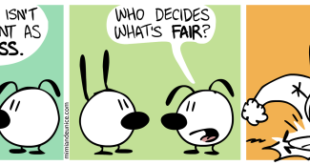On ethics and economics Justice is an ambiguous concept. We use it daily and constantly. But what is justice, really? What should be considered just? How do we measure justice? Is justice the same as equality and impartiality? And is there only one form of justice, or do different notions of justice coexist? These are important questions to try to shed light on and answer. Otherwise, the concept of justice risks becoming just one of many empty and abstract...
Read More »Johan Åkerman — the father of Swedish institutionalism
In recent times, there has been a growing interest in institutionalist trends and research within the field of economics. Traditional explanations and analyses have seemed to have little or no value. Abstract and unrealistic theories have increasingly been replaced by historically grounded ones. Institutional and structural elements in the economy are highlighted, replacing overly short-term and model-based variables. It is, therefore, not surprising that economists have...
Read More »The ‘Nobel Prize’ in Economics is seriously flawed
The ‘Nobel Prize’ in Economics is seriously flawed People have, throughout all times, tried to form an understanding of the economic contexts using economic theories. These theories both shape and are part of society and its history. In the past century, the development of economic theories has taken place at an increasingly rapid pace. Over the last fifty years, these theories have become more mathematical and abstract in their nature. This particularly...
Read More »Quran burnings in Sweden and Rule of Law
Quran burnings in Sweden and Rule of Law This week, yet another Quran was burned in Stockholm, Sweden. As before, the criticism is mostly directly aimed at the Swedish government. What authoritarian regimes seem to fail to understand is that in Sweden, it is the police that makes decisions regarding permits, and Sweden has a constitutionally protected freedom of speech. Quran burnings are both distasteful and contribute to an already significant...
Read More »Gunnar Myrdal’s ‘immanent critique’ of utility theory
Gunnar Myrdal’s ‘immanent critique’ of utility theory During the time period from 1925 to 1933 — when he still considered himself a ‘central-theoretician’ and a ‘pure economic theorist’ — Gunnar Myrdal wanted to apply to economic doctrines an ‘immanent method’ of criticism. His main interest was to criticize the received economic theory that had preserved structures of normative speculation built upon the concepts of utility and welfare. Many have tried to...
Read More »Vad ska vi göra nu när visionerna rasar?
Vad ska vi göra nu när visionerna rasar? .[embedded content]
Read More »The tyranny of merit
The tyranny of merit .[embedded content] .[embedded content]
Read More »Why economists can’t forecast
Why economists can’t forecast The problem of evaluating models built for forecasting is that one cannot get around invariance. There must be a stable bridge that connects the past and pres. ent with the future … To evaluate invariance its domain should be considered. In other words, one has to investigate what the list of all relevant non-negligible potential influences is. To ensure invariance, this list should be complete. This latter point was also...
Read More »Sraffian economics — an unhappy trade-off between rigour and relevance
Sraffian economics — an unhappy trade-off between rigour and relevance We have continually noted the tendency of Sraffians to subordinate the study of the substantive nature of economic phenomena to the requirements of logical rigor, and for Sraffians rigor equals GET (General Equilibrium Theory), the simultaneous determination of endogenous economic variables. The marriage of Sraffian economics and GET is not a promising avenue for studying past thinkers,...
Read More »The deficit lies mainstream economists knowingly tell us
The deficit lies mainstream economists knowingly tell us .[embedded content] [The interview was given to Mark Blaug in 1995. In transcript: “I think there is an element of truth in the view that the superstition that the budget must be balanced at all times [is necessary]. Once it is debunked, [it] takes away one of the bulwarks that every society must have against expenditure out of control. There must be discipline in the allocation of resources or you...
Read More » Lars P. Syll
Lars P. Syll





